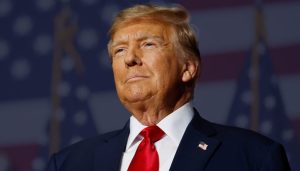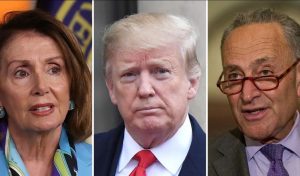DOJ Launches Probe Into California Regulator Championed By Newsom
The Department of Justice has opened a formal investigation into the California Environmental Protection Agency (CalEPA), raising questions about whether the agency’s race-based hiring practices violate federal civil rights laws. The move could mark one of the most high-profile legal challenges yet to Gov. Gavin Newsom’s progressive agenda.
Racial Equity Practices Under Scrutiny
In a letter sent Wednesday, federal officials warned that CalEPA “may be engaged in employment practices that discriminate … based on race, color, sex, and national origin.” The investigation zeroes in on the agency’s “Practices to Advance Racial Equity in Workforce Planning” initiative, which requires interview panels to reflect diversity in race, ethnicity, and gender “as much as possible” and encourages applying “a racial equity lens” at every stage of hiring.
Assistant Attorney General Harmeet Dhillon was blunt in her criticism:
“Race-based employment practices and policies in America’s local and state agencies violate equal treatment under the law. Agencies that unlawfully use protected characteristics as a factor in employment and hiring risk serious legal consequences.”
The DOJ emphasized that the opening of an investigation does not automatically mean wrongdoing occurred. Still, the letter makes clear federal officials believe there is enough evidence to justify a full probe.
Trump–Newsom Rivalry Fuels National Attention
The legal battle arrives at a time of heightened political tension between President Donald Trump and California Gov. Gavin Newsom. The two have long clashed over everything from immigration to environmental policy.
Newsom, seen by many Democrats as a potential 2028 presidential contender, has positioned California as a laboratory for progressive ideas. Trump, by contrast, has consistently attacked California’s policies as reckless, citing high taxes, rising crime, and population flight.
The DOJ’s move against CalEPA adds fuel to that rivalry and could create ripple effects beyond California, especially as Republicans nationwide intensify their fight against diversity, equity, and inclusion (DEI) programs.
DEI Debate Goes National
Supporters of DEI policies argue that they help correct systemic inequities and expand opportunities for historically marginalized groups. Critics counter that such practices amount to reverse discrimination and undermine the principle of equal treatment under the law.
The outcome of the DOJ’s probe could set a precedent for whether similar state- or federally-backed DEI programs withstand constitutional scrutiny.
Court Strikes Down California’s AI Laws
Adding to Newsom’s legal woes, a federal court last week struck down two laws he signed in 2024 to curb the spread of AI-generated political content.
-
Assembly Bill 2839 sought to ban deepfakes in political ads within 120 days of an election.
-
Assembly Bill 2655 required platforms to remove such content.
Senior U.S. District Judge John Mendez ruled that both laws violated free speech protections and conflicted with Section 230 of the federal Communications Decency Act, which shields platforms from liability for user content.
Platforms like X and Rumble, as well as the satirical site The Babylon Bee, had challenged the laws, arguing they would criminalize parody and legitimate political speech.
Mendez agreed, writing: “Just as the government may not dictate the canon of comedy, California cannot preemptively sterilize political content.”
Implications for 2026
With the 2026 election season approaching, California lawmakers had warned about the dangers of deepfakes and disinformation powered by AI. They argued that foreign states, trolls, and even candidates themselves could exploit technology to sway voters. But the court’s ruling ensures no state-level restrictions will be in place, leaving the responsibility with platforms and federal regulators.
What’s Next
For Newsom, the dual setbacks — the DOJ probe into CalEPA and the federal court striking down his AI election laws — come at a politically sensitive time. As he builds his national profile, legal defeats could be used by opponents to portray him as overreaching or ineffective.
Meanwhile, the DOJ’s investigation could redefine how far states and agencies can go in implementing DEI-focused programs before they run afoul of federal civil rights law.
The stage is now set for another high-stakes confrontation between Washington and Sacramento, with ramifications that could extend far beyond California.

James Jenkins is a celebrated Pulitzer Prize-winning author whose work has reshaped the way readers think about social justice and human rights in America. Raised in Atlanta, Georgia, James grew up in a community that instilled in him both resilience and a strong sense of responsibility toward others. After studying political science and creative writing at Howard University, he worked as a journalist covering civil rights issues before dedicating himself fully to fiction. His novels are known for their sharp, empathetic portraits of marginalized communities and for weaving personal stories with broader political realities. Jenkins’s breakout novel, Shadows of Freedom, won national acclaim for its unflinching look at systemic inequality, while his more recent works explore themes of identity, resilience, and the fight for dignity in the face of oppression. Beyond his novels, James is an active public speaker, lecturing at universities and participating in nonprofit initiatives that support literacy and community empowerment. He believes that storytelling is a way to preserve history and inspire change. When not writing, James enjoys jazz music, mentoring young writers, and traveling with his family to explore cultures and stories around the world.









